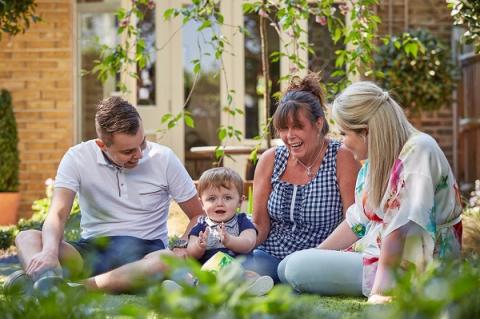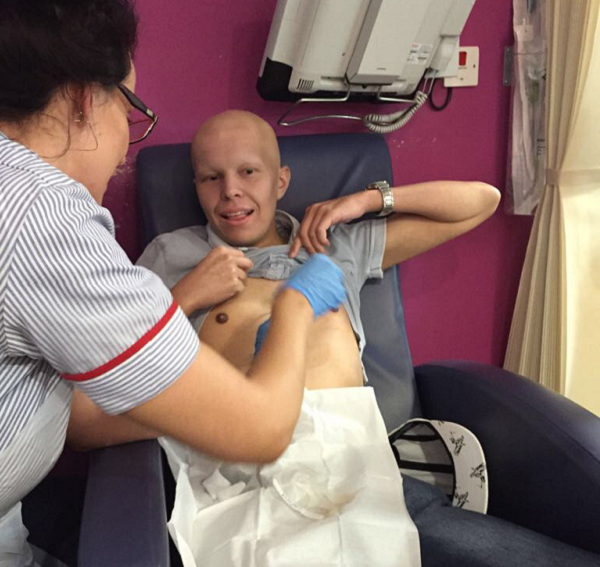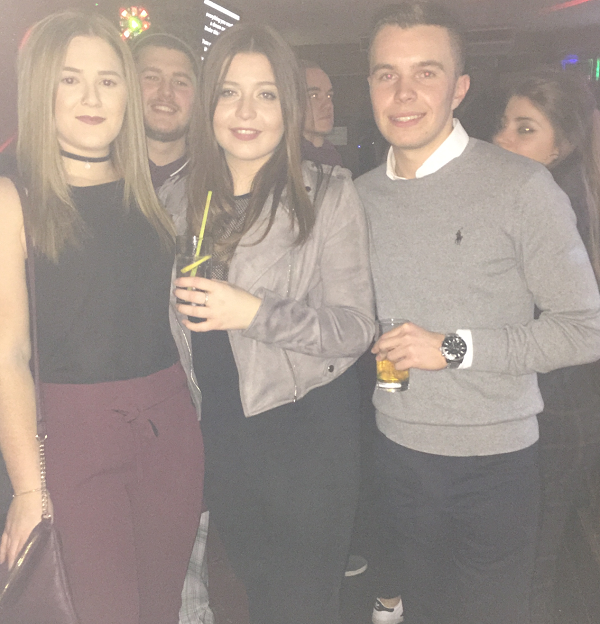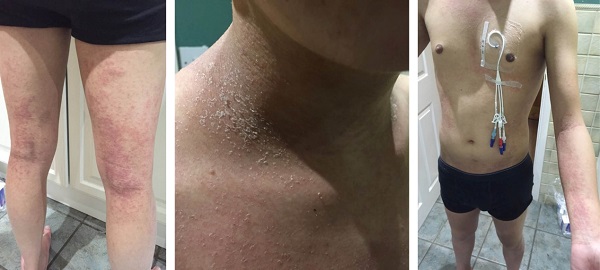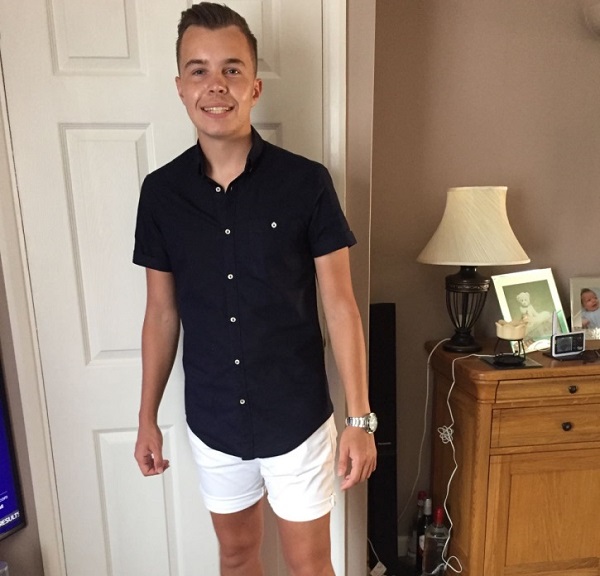Matthew had his transplant in 2015 when he was 20 years old, after being diagnosed with acute myeloid leukaemia (AML). He spoke to Billie in the Anthony Nolan Patient Services team about his experiences.
Can you tell me about when you first become unwell with AML?
The main symptom for me was that I didn’t really have an appetite. Obviously I knew I had to eat, but I felt really sick whenever I did. I told the doctor that it had been going on for a few months and I was sent for a blood test.
They didn’t have my mobile and were apparently trying to ring the house phone all day, when I got in there was a letter on the mat saying I had to go to A&E. At about 3am, they told me what was wrong.
Looking back, I had loads of symptoms but made excuses for them. I put my tiredness down to long shifts at work and being busy – and in reality, I had acute myeloid leukaemia (AML).
When was a transplant discussed as a treatment option for you?
After a couple of cycles of chemo, my counts weren’t coming up. They investigated why, and in the process found that I had the FLT3 gene.
That’s an indicator that if I did get into remission and didn’t have a transplant, the AML was more than likely to come back.
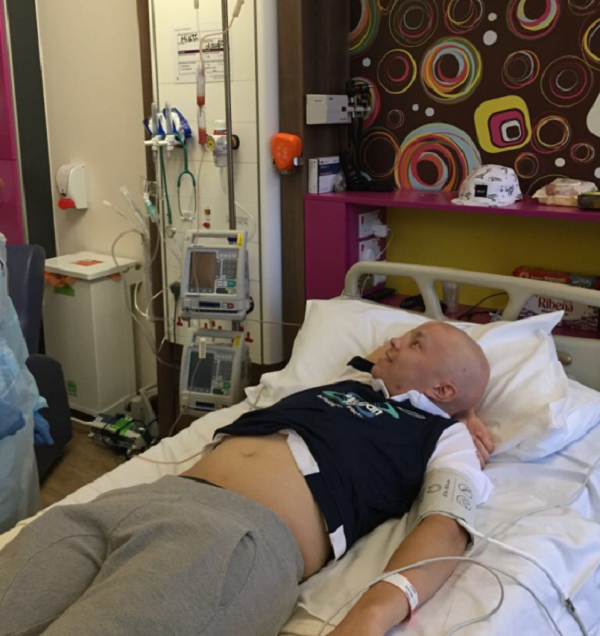
'If I did get into remission and didn’t have a transplant, the AML was more than likely to come back.'
It must have been a lot of complex information to take in. Did you fully understand what was happening?
I was always quite good at science at school, and it all made sense what the doctors were saying, but the speed that everything was happening at made it all quite surreal. It was almost like it couldn’t be real, when the doctors were talking about me being so sick with AML.
Do you have any siblings?
Yeah my sister was pregnant at the time. She gave birth ten days before my transplant and couldn’t be tested. So we had to look straight to the register for a match.
Were you ever worried that there might not be a match for you?
No. Throughout the whole thing I tried to be positive and even when I couldn’t be, I made myself at least focus on the future, and getting out of hospital and back to my life. I think that really helped me. I didn’t really think about the possibility of there not being a match for me. I don’t know why, but I just knew there was one.
How was your time in hospital?
It was hard, as my sister was having her baby and I missed that. I remember one particularly bad day during pre-conditioning. They’d told me that I was going to be a lot more tired than I had been up until then. I thought, ‘Fine, I’ll just have more naps!’
But just before my transplant, I got up one morning to get dressed and have a shower as that always made me feel better. I walked from the bed to the bathroom which wasn’t far at all (a few metres max), had a quick shower, and I felt like I’d run a marathon.
I made it back to my bed and just sat there for ages, didn’t dry myself or anything. Whenever I tell people about that, I feel like however I describe it, I can’t do justice to just how tired I felt.
Who was your support network when you were unwell?
Mum and Dad, mainly. I live in Kent which is an hour’s drive from the transplant centre. But even so, if my mum couldn’t come, my nan would visit me or my sister and all my friends too. Every other Friday night my friends would come up to the hospital.
How do you think you being ill with AML affected your family?
At the time you don’t really think about the other people around you, I was like, ‘I’m the one who’s ill’, but looking back, it must have been horrible for them. I do remember the very moment they doctors told me I had AML – I felt relief as I’d been feeling sick for ages, and I was glad they knew what was wrong and so could hopefully fix it.
But at the same time I felt really guilty. And that guilt was because I knew it would affect my family, and they were going to have to put up with so much because of me.
You mentioned your friends visiting you – do you think they understood what a transplant was?
They might have done, I dunno. I don’t think they realised the severity of it all. Or maybe they did, and they didn’t let on in front of me, which was a good thing.
What was it like when you went home?
I was so glad to be out of hospital. I knew if I stayed well enough I wouldn’t have to go back in. I’d have to go up there most days but not stay – so that was motivation for me.
I lay about on the sofa a lot. I remember getting flu in the January and I barely moved for two weeks, the fatigue was so bad.
Around the Christmas time I was going up to the hospital twice a week, having transfusions and platelets, and my counts and chimerism weren’t doing too well. I had to have donor lymphocyte infusions (DLI). The doctors explained it really well, like a little kickstart to get things moving again, and thankfully that’s what it did. The counts started to move in the right direction.
They wanted to get me off ciclosporin as quickly as possible, but that gave me skin GvHD, which was terrible. I had red and bobbly rashes all over my body. The creams they gave me didn’t do anything, so then it was steroids, which of course make you eat loads.
I had a big puffy face too. That wasn’t a nice time at all. You look in the mirror and you think, ‘I don’t look very well – I’m supposed to be getting better!’
That did affect me, especially as a young person, because when you are young, all you worry about is how you look.
Did exercise help in your recovery from AML?
Beyond walking I didn’t do much exercise, although I did start going to football training for a bit. The first time I went, as you can probably imagine, I felt so tired and sick, just awful!
But when I went the next week, and the week after that, and the week after that, each time I thought, ‘I’m doing better than last week’
So that was a good thing. Seeing those improvements gave me motivation.
How has being ill as young man impacted on your social life? Do you feel like you missed out on things?
Yeah, I did. I’d made plans to go to Magaluf with the lads that summer, and on the day I was diagnosed with AML we’d just paid it off. So I was all looking forward to my holiday and then suddenly I was really ill.
Luckily they thought it would be wrong to go without me – so they didn’t go, which I did appreciate!
I think something that’s hard for young people when they get cancer is that Facebook and Twitter are at your fingertips. You’re lying in bed in hospital; there’s nothing to do, so you look at it.
Then you see everyone else out on a Saturday night, or having BBQs, or just doing stuff, and you feel jealous, ‘And think why me? Why am I the one stuck in here?’
Facebook can be a good thing for keeping in touch with people, but when you are in that hospital bed in isolation, it gives you a window on the world that you aren’t part of. Time passing by that you aren’t getting to experience.
And the worst thing about Facebook is that everyone just puts out all the good stuff, the best pictures and the things they want you to see. That was the thing that got me down the most, to be honest.
Were you studying or in employment when you got sick?
I had a job; I worked at Sainsbury’s and was just about to go through a management scheme, but that all got put on hold. I went back to work in September, but only for a short period of time.
A positive that came out of all that time out of action with the transplant is that it gave me time to think, and look at what I wanted to do – I’ve now since gone into a new job at BP which I enjoy a lot.
Do you have any tips or advice you’d give a young person going through a transplant now?
Goals are really important, so try and set some. Even if it’s a way off, have it in the back of your mind. ‘In however many months I’m going to do that,’ or ‘I’m going to get back to that.’ It gives you something to work towards.
The other thing I’d like to say is; when you come out of hospital it’s not plain sailing, so don’t think it’s going to be, at least for the first six months.
You have to try and make peace with that in your mind beforehand, so you aren’t too gutted after the transplant when you don’t feel better right away. Try not to be disheartened about the time it can take to get better. You will get there in the end.
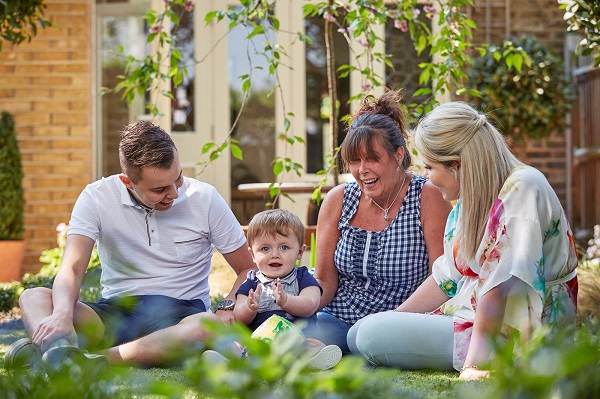
'Try not to be disheartened about the time it can take to get better. You will get there in the end.'
Young men are more likely to be potential matches for people who need to have a transplant – what would you say to men your age about the importance of joining the register?
I think it is extremely important for young men to be on the donor register; it takes hardly any effort to sign up and donating stem cells is a painless process. It carries a great reward too, as it saves a person’s life and saves their family a lot of heartache. Guys my age should think, ‘What if I needed a transplant, or my girlfriend or my dad did, and there wasn’t a match?’ Then they shouldn’t think twice about signing up!
